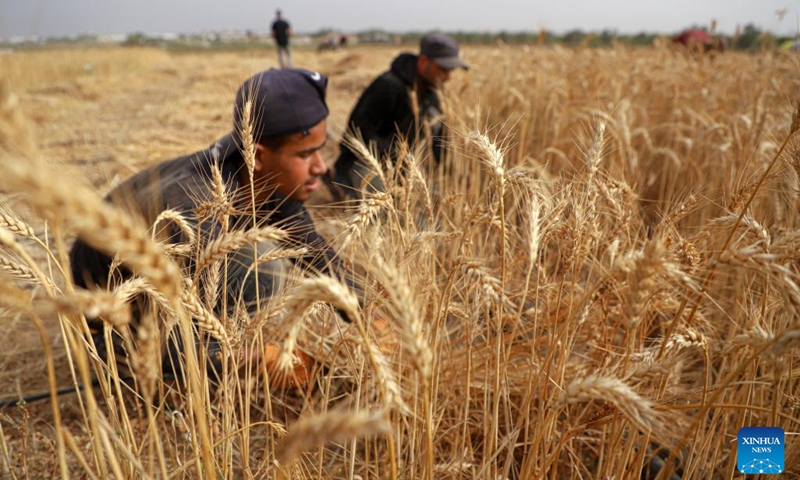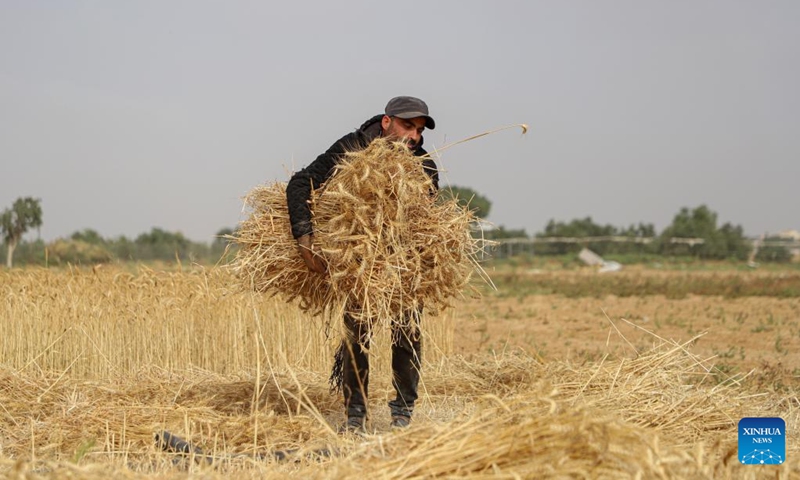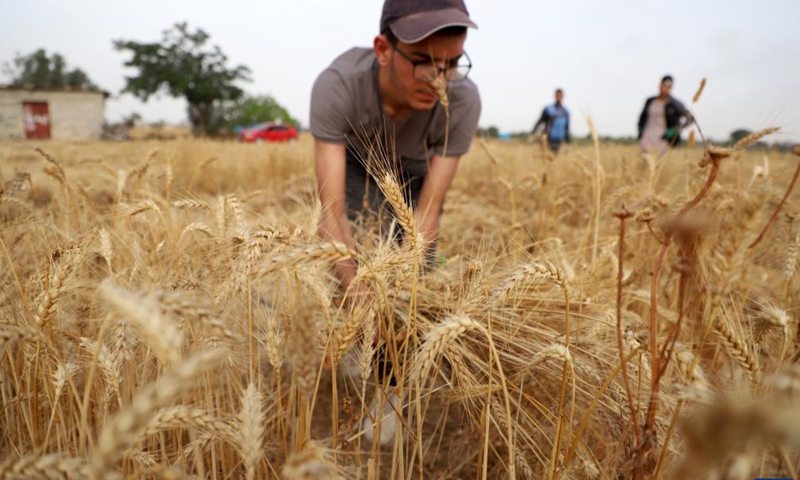
Farmers harvest wheat on a farm in the southern Gaza Strip city of Khan Younis, June 3, 2023. Local farmers from the Palestinian coastal enclave complained that they could hardly harvest the much-needed wheat, an indispensable food for 2.3 million Gazan people, as climate change has severely impacted their crops.(Photo: Xinhua)

A farmer harvests wheat on a farm in the southern Gaza Strip city of Khan Younis, June 3, 2023. Local farmers from the Palestinian coastal enclave complained that they could hardly harvest the much-needed wheat, an indispensable food for 2.3 million Gazan people, as climate change has severely impacted their crops.(Photo: Xinhua)

A farmer harvests wheat on a farm in the southern Gaza Strip city of Khan Younis, June 3, 2023. Local farmers from the Palestinian coastal enclave complained that they could hardly harvest the much-needed wheat, an indispensable food for 2.3 million Gazan people, as climate change has severely impacted their crops.(Photo: Xinhua)
Local farmers from the Palestinian coastal enclave complained that they could hardly harvest the much-needed wheat, an indispensable food for 2.3 million Gazan people, as climate change has severely impacted their crops.
The annual wheat crop decreased by 1,000 tons from last year's yield of 5,000 tons due to the delayed winter and unreliable rainfall, according to Mohammed Odeh, a senior official at the Hamas-run Agriculture Ministry in Gaza.
Mohammed Qudaih, an owner of a 20-dunam wheat farm, told Xinhua that "in the past, we used to plant about 200 to 400 dunams of wheat (200,000 to 400,000 square meters), but nowadays, we can only plant ten to 20 dunams of wheat on our land because of climate change."
Longer summers with extreme heat and delayed winters led to the miss of the spring season, which led to the death of many crops in the Gaza Strip, including wheat, explained Qudaih.
"So, we can barely secure about 25 percent of our wheat harvest during its annual season," said the farmer, noting that he hardly harvested about one ton of wheat so far, which made him lose about 20,000 U.S. dollars this year.
"Such conditions force most farmers to give up working in the agriculture field," he stressed, adding that only 30 out of his 180 workers have remained for the harvesting job this year.
Hazem Sief, a farmer from Khan Younis City south of Gaza, told Xinhua that he used to gain about 700 dollars every wheat season, which enabled him to keep his six-member family afloat.
Now, working eight hours in the field only earns 15 dollars a day due to the high unemployment rate in Gaza, said Sief.
"I do not have any other chance to earn money as we already have been suffering from the high rate of unemployment in Gaza," the farmer said, adding that "thing is better than nothing."
Mohammed Fusaifis, another Khan Younis farmer, suggested the Agriculture Ministry adopt strategic plans, including implementing training workshops, in a bid to help farmers overcome the unusual conditions and maintain their only source of livelihood.
